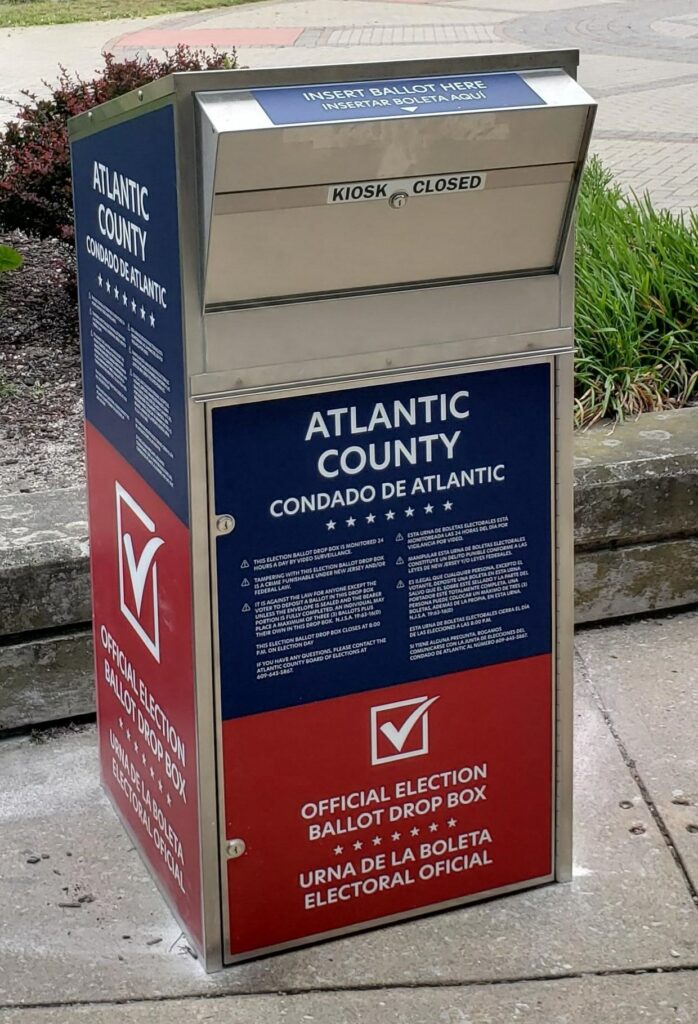Rutgers-Eagleton Poll: New Jersey Voters Largely Support States Making Mail-in Voting Easier

Despite pandemic-driven changes to voting procedures, New Jersey voters are highly supportive of the expansion of mail-in voting and most have used, or plan to use, this method to cast their ballot, according to the latest Rutgers-Eagleton Poll. Seven in 10 voters support efforts to make it easier to vote by mail or absentee ballot instead of voting in person at a polling place.
“New Jersey voters mirror national trends when it comes to support for mail-in voting,” said Ashley Koning, assistant research professor and director of the Eagleton Center for Public Interest Polling (ECPIP) at Rutgers University–New Brunswick. “This support fluctuates, however, depending on whether or not voting by mail is put within the context of the pandemic. In the overall numbers, views are similar, but when we break down the data by partisanship, a number of Democrats – as well as a few Republicans – are more likely to support voting by mail when the pandemic is explicitly mentioned, whereas independents become slightly more mixed.”
As of the time of this survey, three-quarters say they have already voted or plan to vote by mail, while a quarter say they will vote in person on Election Day. Among those who have not yet voted, half say they plan to use a mail-in ballot, while half will physically go to the polls.
“These numbers in New Jersey reflect the unprecedented numbers across the country of those voting early and voting by mail,” noted Koning.
Both support for and usage of mail-in ballots are deeply divided by partisanship, however. Nearly all Democrats and a majority of independents support efforts by states to make mail-in voting easier; about four in 10 Republicans feel the same. Over half of Republicans, on the other hand, take the opposite stance.
Likewise, while a majority of Democrats, independents, and Republicans say they have voted or will vote by mail, they say this to varying degrees. About three-quarters of Democrats and independents have done or will do so, compared to two-thirds of Republicans.
“Partisan division on vote by mail attitudes and behaviors is no surprise,” said Koning. “The issue has become highly politicized during the pandemic, pitting Democrats’ emphasis on possible health risks of in-person voting against Republicans’ concerns that mail-in voting could lead to increased ballot errors and voter fraud.”
For those who have or will vote by mail, a secure drop box is far and away the method of choice. Fifty-one percent of likely voters say that they have delivered or will deliver their mailed ballot to a secure drop box in their county. Thirty-four percent have sent or will send it by mail. Just 13 percent have dropped or plan to drop off their ballot at their county’s board of elections office. Among those who have voted or plan to vote by mail, partisans of all stripes share similar preferences when it comes to returning their mailed ballot.
As for those planning to vote in person on Election Day, just over half of likely voters (53 percent) plan to vote by provisional ballot at their polling place; another 28 percent plan to drop off their completed ballot, and 19 percent are unsure.
Even in the face of new voting systems and the pandemic, most New Jersey voters feel confident that votes across the country will be accurately counted in this year’s election. Thirty percent of likely voters say they are “very confident,” and another 39 percent are “somewhat confident”; 18 percent are “not too confident,” and 12 percent are “not at all confident.”
Once again, attitudes toward this election issue are highly polarized: among likely voters, independents (63 percent) and especially Democrats (84 percent) feel much more confident about the accuracy of the vote count than Republicans (52 percent).
Results are from a statewide poll of 1,001 adults contacted by live callers on landlines and cell phones from October 18 – 24. The full sample has a margin of error of +/- 3.8 percentage points; the subsample of 972 registered voters has a margin of error of +/- 3.8 percentage points, and the subsample of 872 likely voters has a margin of error of +/- 4.0 percentage points. Interviews were done in English and, when requested, Spanish.





